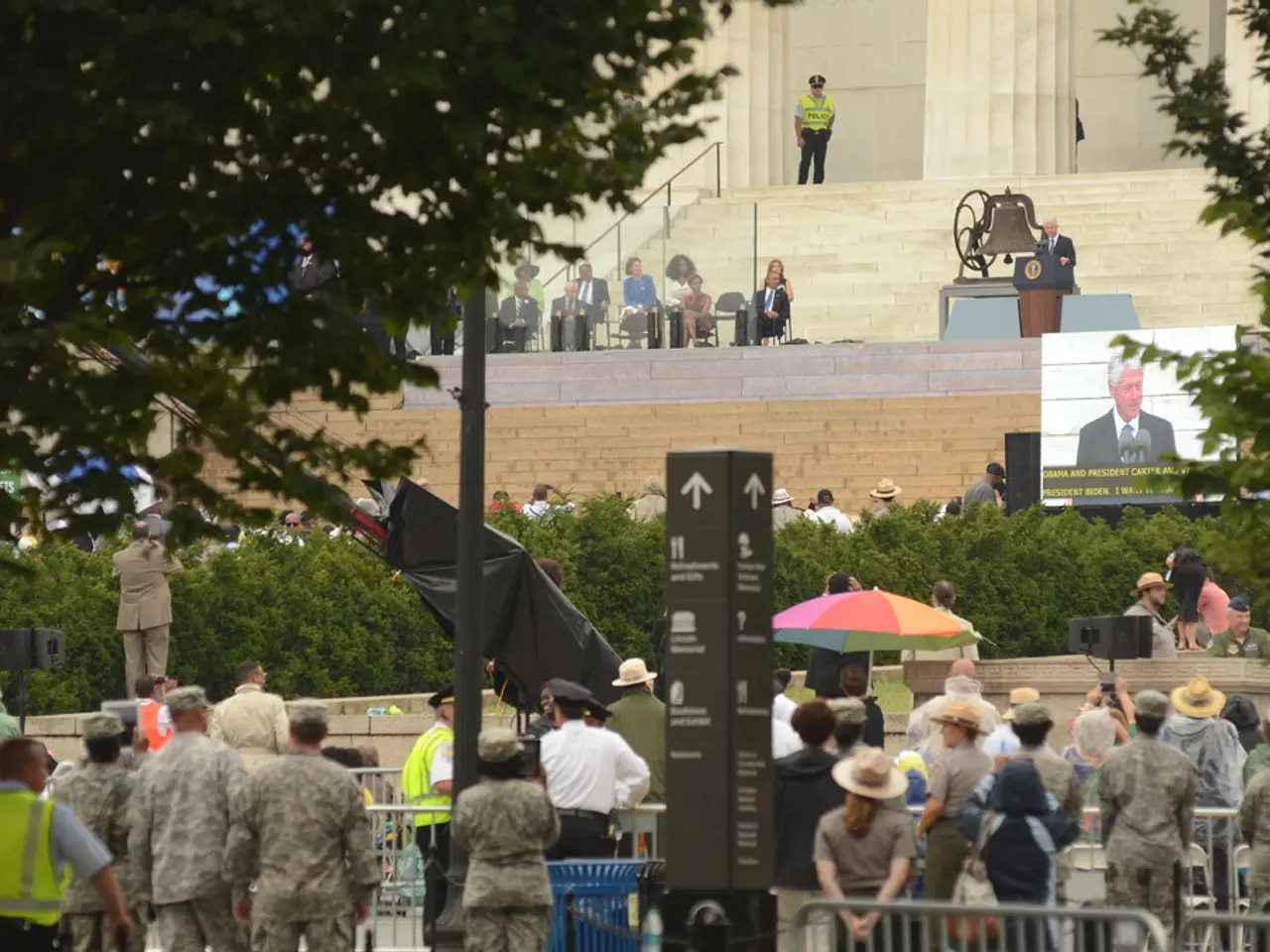Controversy over Trump's travel restrictions on immigration
On June 4, 2025, President Trump issued an Executive Order titled "Protecting the Nation from Foreign Terrorist Entry into the United States." The order aimed to restrict entry from seven countries, primarily due to concerns over national security, deficient vetting processes, inadequate information sharing, and other immigration-related issues.
The order bans, for 90 days, all immigrants (except green card holders) from seven majority-Muslim countries: Iran, Iraq, Syria, Libya, Sudan, Somalia, and Yemen. The suspension of the U.S. refugee program was also enacted for 120 days, and Syrian refugees were barred from entering the U.S. indefinitely.
The legality of the order will be decided by federal appellate courts and possibly SCOTUS, with arguments between Trump's Department of Justice and civil rights and immigration advocacy groups. The order instructs his administration to develop "extreme vetting" measures for immigrants from those seven countries to keep "radical Islamic terrorists" out of the United States.
The order gives preference in admission to Christians, as the persecuted in majority-Muslim countries. However, it's important to note that the words "Christians" and "Muslims" do not appear anywhere in the text of the order. Instead, Section 5(b) prescribes to "prioritize refugee claims made by individuals on the basis of religious-based persecution, provided that the religion of the individual is a minority religion in the individual's country of nationality."
The selection of these seven countries was based on three main criteria: inadequate vetting and information sharing, high visa overstay rates, and recalcitrant countries refusing deportees. Iraq, Libya, and Somalia are designated "terrorist safe havens" by the State Department.
The order's scope reflects an expansion of executive authority over immigration that began with earlier presidential memoranda and has evolved through various administrations. However, the breadth introduced under Trump's 2025 order has drawn significant legislative and public challenges.
It's worth noting that the order does make exceptions for individuals on a case-by-case basis if it is deemed to be in the national interest. The Secretaries of State and Homeland Security have the authority to make these determinations jointly.
The DHS later issued a clarification that states "we expect swift entry for these individuals." Federal judges have issued temporary "stays" ordering the Customs and Border Protection (CBP) not to remove anyone who has arrived in or was en route to the U.S., but these orders are limited in scope and will only last about a week or two.
The Lautenberg Amendment, first enacted in 1990, prioritizes refugees from religious minorities, including Jews, Christians, and Baha'is from countries like Iran. This amendment expires each year and has been reauthorized numerous times.
President Trump's Executive Order has sparked debates and legal challenges, with many questioning the justifications for the selection of the seven countries. The order's future remains uncertain as the federal appellate courts and SCOTUS will need to rule on the matter after hearing arguments from both sides.
[1] Source: https://www.brookings.edu/research/the-trump-administrations-executive-order-on-immigration-and-refugees-explained/ [2] Source: https://www.aclu.org/issues/immigrants-rights/immigrants-rights-and-national-security/trump-immigration-executive-order [3] Source: https://www.vox.com/2017/1/30/14412928/trump-immigration-ban-executive-order [4] Source: https://www.nytimes.com/2017/01/30/us/politics/trump-immigration-ban-executive-order.html [5] Source: https://www.cnn.com/2017/01/29/politics/trump-immigration-ban-explained/index.html
The Executive Order issued by President Trump on June 4, 2025, justifies its focus on seven countries, primarily due to concerns about war-and-conflicts, policy-and-legislation, and politics surrounding immigration, as well as general news concerning national security, vetting processes, and information sharing. The selection of these countries was based on factors such as inadequate vetting and information sharing, high visa overstay rates, and recalcitrant countries refusing deportees, with the order's implementation leading to legal challenges and debates, including ongoing court cases.








